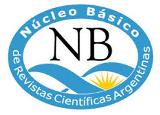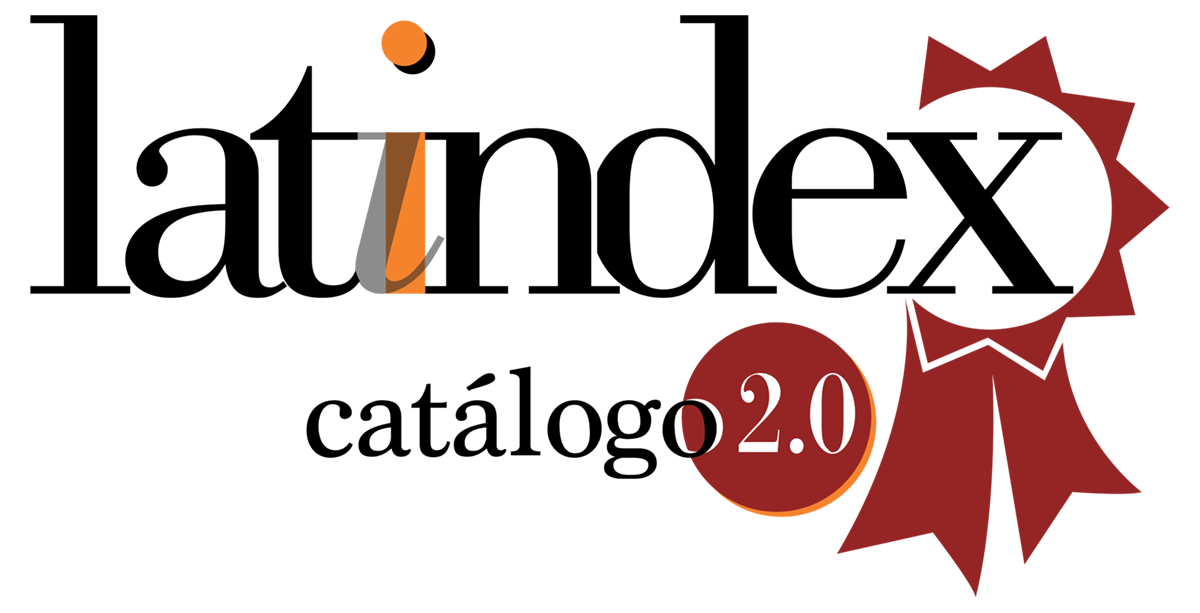Between Scarcity and Virtue
Nursing Care Ethical Dilemmas during the Covid-19 Pandemic
DOI:
https://doi.org/10.24215/23139048e066Keywords:
Care, nursing, Covid-19 pandemic, ethical dilemmasAbstract
During the Covid-19 pandemic in Argentina, the healthcare work is transformed by spontaneously adapting to certain demands of the particular situation. There is an increased personnel demand, the work is intensified and new care protocols, norms and strategies are established. In this article we present some results of the analysis of interviews conducted with nurses about their work experiences in general hospitals in the southern suburbs of Buenos Aires. The objective is to account for the ethical dilemmas faced by nursing staff during the pandemic in order to make visible difficulties and possible lines of future work around nourse training and working conditions.
Downloads
References
Bakry, A. M., Sobhy, E. y Abdelmohty, H. (2020). Cardiac surgeons between apprehension and ethical duty in the COVID-19 pandemic. Asian cardiovascular & thoracic annals, 218492320943355. https://doi.org/10.1177/0218492320943355
Beltrán Salazar, O. (2011). Dilemas éticos en el cuidado enfermero. Index de Enfermería, 20(1-2), 36-40. https://dx.doi.org/10.4321/S1132-12962011000100008
Brusco, A. (1999). Humanización de la asistencia al enfermo. Bilbao, España: Sal Terrae.
Burin, M. y Meler, I. (2010). Género y Familia. Poder, amor y sexualidad en la construcción de la subjetividad. Ciudad Autónoma de Buenos Aires, Argentina: Paidós.
Collière, M. F. (1993). Promover la vida. Madrid, España: Interamericana.
Consejo Internacional de Enfermería. (2021). Código de Ética del CIE para las enfermeras. Recuperado de https://www.icn.ch/sites/default/files/inline-files/ICN_Code-of-Ethics_SP_WEB.pdf
Dellasega, C. y Kanaskie, M. L. (2021). Nursing ethics in an era of pandemic. Applied nursing research, 62, 151508. https://doi.org/10.1016/j.apnr.2021.151508
Dunn, M., Sheehan M., Hordem, J., Turnham, H. y Wilkinson, D. (2020). ‘Your country needs you': the ethics of allocating staff to high-risk clinical roles in the management of patients with COVID-19. Journal Medical Ethics, 46(7), 436-440. https://jme.bmj.com/content/46/7/436
Federici, S. (2013). Sobre el trabajo afectivo. En Revolución en punto cero (pp. 181-204). Madrid, España: Traficantes de sueños.
Green, J., Darbyshire, P., Adams, A. y Jackson, D. (2016). It's agony for us as well: Neonatal nurses reflect on iatrogenic pain. Nursing ethics, 23(2), 176-190. https://doi.org/10.1177/0969733014558968
Instituto Nacional de Estadísticas y Censos (2012). Censo Nacional de Población, Hogares y Viviendas 2010: Censo del Bicentenario. Ciudad Autónoma de Buenos Aires, Argentina: INDEC.
Instituto Nacional de Estadísticas y Censos (2021). Incidencia de la pobreza y la indigencia en 31 aglomerados urbanos. Segundo semestre de 2020. Condiciones de vida Vol. 5, n°4. Ciudad Autónoma de Buenos Aires, Argentina: INDEC.
Izquierdo Machín, E. (2015). Enfermería: Teoría de Jean Watson y la inteligencia emocional, una visión humana. Revista Cubana de Enfermería, 31(3). Recuperado de http://www.revenfermeria.sld.cu/index.php/enf/article/view/686/131
Jansen, T. L., Hem, M. H., Dambolt, L. J. y Hanssen, I. (2020). Moral distress in acute psychiatric nursing: Multifaceted dilemmas and demands. Nursing ethics, 27(5), 1315-1326. https://doi.org/10.1177/0969733019877526
Jia, Y., Chen, O., Xiao, Z., Xiao, J., Bian, J. y Jia, H. (2021). Nurses' ethical challenges caring for people with COVID-19: A qualitative study. Nursing ethics, 28(1), 33-45. https://doi.org/10.1177/0969733020944453
Kérouac, S., Pepin, J., Ducharme, F., Duquette, A. y Major, F. (1996). El pensamiento enfermero. Barcelona, España: Elsevier.
Larkin, M. E., Beardslee, B., Cagliero, E., Griffith, C. A., Milaszewski, K., Mugford, M. T., Myerson, J. M., Ni, W., Perry, D. J., Winkler, S. y Witte, E. R. (2019). Ethical challenges experienced by clinical research nurses: A qualitative study. Nursing ethics, 26(1), 172-184. https://doi.org/10.1177/0969733017693441
Loyola da Silva, T. C., de Medeiros Pinheiro, F., Ákysa, K., Brito do O’Silva, C., de Mesquita, X., Suênia, S. y Bezerra de Macedo, E. A. (2021). El impacto de la pandemia en el rol de la enfermería: una revisión narrativa de la literatura. Enfermería Global, 20(63), 502-543. https://doi.org/10.6018/eglobal.454061
Marrujo Pérez, K. J. y Palacios Ceña, D. (2016). Efectos de la tecnología en los cuidados de enfermería. Cultura de los Cuidados, 20(46), s/p. http://rua.ua.es/dspace/handle/10045/61779
Mèlich, J. C. (2010). Poética de lo íntimo (sobre ética y antropología). Ars Brevis, (16), 314-331. Recuperado de https://raco.cat/index.php/ArsBrevis/article/view/244312
Menon, V. y Padhy, S. K. (2020). Ethical dilemmas faced by health care workers during COVID-19 pandemic: Issues, implications and suggestions. Asian journal of psychiatry, (51), 102116. https://doi.org/10.1016/j.ajp.2020.102116
Morse, J. M., Solberg, S. M., Neander, W. L., Bottorff, J. L. y Johnson, J. L. (1990). Concepts of caring and caring as a concept. ANS. Advances in nursing science, 13(1), 1-14. https://doi.org/10.1097/00012272-199009000-00002
Nacoti, M. (2020). Esperienza clinica e criticità. Recenti progressi in medicina, 111(6), 374-378. http://dx.doi.org/10.1701/3394.33760
Organización Panamericana de la Salud. (2022). The COVID-19 HEalth caRe wOrkErs Study (HEROES). Informe Regional de las Américas. Recuperado de https://iris.paho.org/handle/10665.2/55563
Ramacciotti, K. I. (2020). Cuidar en tiempos de pandemia. Descentrada, 4(2), e126. https://doi.org/10.24215/25457284e126
Rosero Botina, C. M. (2020). Dilemas morales en el personal sanitario asistencial durante la pandemia COVID-19 (trabajo de grado). Recuperado de http://hdl.handle.net/20.500.12495/3689
Rushton, C. H. (2016). Moral Resilience: A Capacity for Navigating Moral Distress in Critical Care. AACN advanced critical care, 27(1), 111-119. https://doi.org/10.4037/aacnacc2016275
Sachetti, L. y Rovere, M. (2011). Surgimiento de la enfermería. Córdoba, Argentina: El Ágora.
Scott, J. (1996). El género: una categoría útil para el análisis histórico. En M. Lamas (Comp.), El género, la construcción cultural de la diferencia sexual. Ciudad de México, México: UNAM.
Singh, J. A. y Moodley, K. (2020) Critical care triaging in the shadow of COVID-19: Ethics considerations. South African Medical Journal, 110(5), 355-359. https://doi.org/10.7196/SAMJ.2020.v110i5.14778
Strandås, M. y Fredriksen, S. T. (2015). Ethical challenges in neonatal intensive care nursing. Nursing ethics, 22(8), 901-912. https://doi.org/10.1177/0969733014551596
Sy, A. (2016). Ética en el trabajo de campo: una reflexión desde la experiencia etnográfica. Revista de Antropología Experimental, (16), 353-363. https://doi.org/10.17561/rae.v0i16.2601
Sy, A., Moglia, B. y Derossi, P. D. (2021). Todo se transformó completamente: experiencias de atención a la pandemia de covid-19 en el ámbito de la salud pública. Revista De Salud Pública, 26(2), 60-72. https://doi.org/10.31052/1853.1180.v26.n2.33077
Troncoso, M. y Suazo, S. (2007). Cuidado humanizado: un desafío para las enfermeras en los servicios hospitalarios. Acta Paulista de Enfermagem, 20(4), 499-503. https://doi.org/10.1590/S0103-21002007000400019
Urra, M. E., Jana, A. A. y García, V. M. (2011). Algunos aspectos esenciales del pensamiento de Jean Watson y su teoría de cuidados transpersonales. Ciencia y enfermería, 17(3), 11-22. http://dx.doi.org/10.4067/S0717-95532011000300002
Watson, J. (1979). Enfermería: Filosofía y ciencia del cuidado. Boston, United States: Little, Brown & Company.
Watson, J. (1985). Nursing: human science and human care. Connecticut, United States: Appleton-Century Croft.
Published
Versions
- 2022-11-11 (2)
- 2022-11-11 (1)
How to Cite
Issue
Section
License
Copyright (c) 2022 Cuadernos de H ideas

This work is licensed under a Creative Commons Attribution-NonCommercial-ShareAlike 4.0 International License.
The acceptance of an original by the journal implies the non-exclusive transfer of the economic rights of the authors in favor of the editor, who allows reuse, after editing (postprint), under a Creative Commons Attribution License -NonCommercial-ShareAlike 4.0 International (CC BY-NC-SA 4.0)
In accordance with these terms, the material can be shared (copied and redistributed in any medium or format) and adapted (remixed, transformed and created from the material another work), provided that a) the authorship and original source of its publication (magazine and URL of the work), b) is not used for commercial purposes and c) the same license terms are maintained.
The transfer of non-exclusive rights implies that after its publication (postprint) in Cuadernos de H ideas the authors can publish their work in any language, medium and format; in such cases, it is requested that it be stated that the material was originally published in this journal.
Such assignment also implies the authorization of the authors for the work to be harvested by SEDICI, the institutional repository of the National University of La Plata, and be disseminated in the databases that the editorial team considers appropriate for increase the visibility of the publication and its authors.
Likewise, the journal encourages the authors so that after their publication in Cuadernos de H ideas they deposit their productions in other institutional and thematic repositories, under the principle that offering society scientific and academic production without restrictions contributes to a greater exchange of global knowledge.










.png)

























